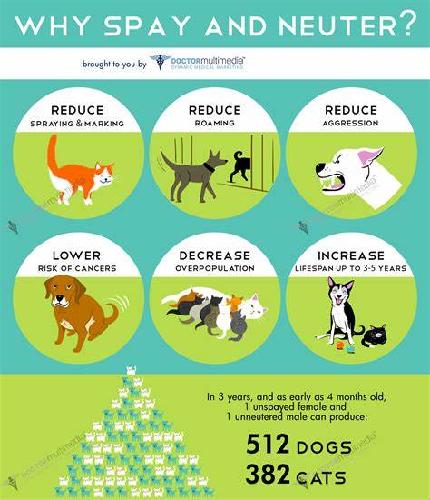Get pets spayed/neutered
Pet overpopulation is a problem across the country, including in the Sikeston area, leaving more adoptable animals than homes to care for them. One way to help solve this problem is to be sure to spay/neuter your pets.
Jamie Williams, manager at Sikeston PAWS (Pet and Animal Welfare Services), said it is important that people get their pets spayed or neutered.
“This country is overrun with unwanted dogs and cats and it’s very sad,” Williams said.
While altering your pets will help fight the pet overpopulation it can also help protect them against certain illnesses, address certain unwanted behaviors and save money.
An added benefit is the average lifespan of spayed and neutered cats and dogs is much longer than the lifespan of those not altered.
The reduced lifespan of unaltered pets can, in part, be attributed to an increased urge to roam. Such roaming can expose them to fights with other animals, resulting in injuries and infections, trauma from vehicle strikes and other accidental mishaps.
Another contributor to the increased longevity of altered pets is their reduced risk of certain types of cancers. Intact female cats and dogs have a greater chance of developing pyometra (a potentially fatal uterine infection) and uterine, mammary gland and other cancers of the reproductive system. Neutering male pets eliminates their risk of testicular cancer and eliminates the possibility of developing benign prostatic hyperplasia which can affect the ability to defecate.
Keeping your pets from getting those diseases not only helps increase the life of the pet, but also saves money. Caring for a pet with reproductive system cancer or pyometra can easily run thousands of dollars—five to 10 times as much as a routine spay or neuter surgery. In cases where intact dogs and cats may fight, treatment of their related injuries can also result in high veterinary costs.
Altering your pets can also help alleviate some unwanted behaviors.
Intact dogs are more prone to urine-marking than neutered dogs. Although urine-marking is usually associated with male dogs, females may do it too. Spaying or neutering your dog should reduce urine-marking and may even stop it altogether.
For cats, the urge to spray is extremely strong in those not altered, so the simplest solution is to alter by five months old before the problem arises. Neutering solves 90% of all marking issues, even in cats who have been doing it for a while. It can also minimize howling, the urge to roam and fighting with other males.
In both cats and dogs, the longer you wait, the greater the risk of the surgery not doing the trick because the animal has practiced the behavior for a longer period, thereby reinforcing the habit.
Other behavioral problems that may be alleviated by spay/neuter include: certain types of aggressive behavior, roaming (especially when females are in heat), excessive barking and mounting, and in-heat behaviors such as yowling/vocalizing, rolling and demanding behaviors.
Spaying/neutering pets can also save money. Caring for a pet with reproductive system cancer or pyometra can easily run thousands of dollars—five to 10 times as much as a routine spay or neuter surgery. In cases where intact dogs and cats may fight, treatment of their related injuries can also result in high veterinary costs.
General recommendations for spaying/neutering a pet are:
- Owned cats should be altered before they are five months old as they can become pregnant at four months of age and older.
- Owned female dogs should be spayed before they are 5 months old.
- Owned small, medium, and large breed male dogs should be neutered before they are five months old.
- Owned giant breed male dogs who are house pets should be neutered after growth stops, between 12 to 15 months of age due to orthopedic concerns.
- Owned giant breed male dogs who roam freely should be neutered before they are five months old due to the population concerns of unintended breeding.
- Shelter animals should be altered prior to adoption—ideally, as early as six weeks old; however, some states may require waiting until the animals are eight weeks old.


 Facebook
Facebook






